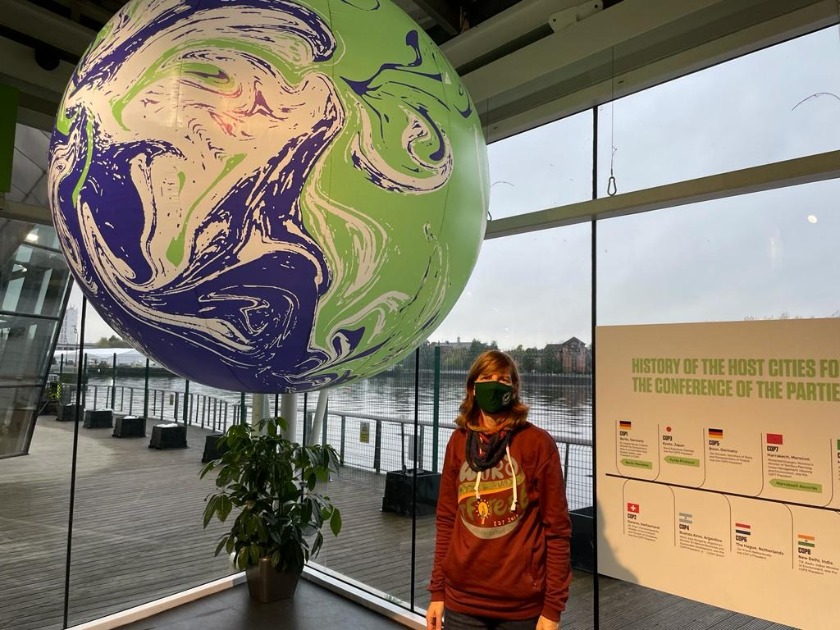I am delighted to join my Word Forest Organisation colleagues this week up in Glasgow for COP-26. I’m looking forward to experiencing the sights and sounds and events, having seen what they have been reporting on during the last week. What really struck me as I travelled up from Lyme Regis to Glasgow via Birmingham is the difference between the media reporting of COP, and the impressions I get from my friends of what is going on.
For those who have little understanding of what COP is all about, or that are having to rely on mainstream news for their information, much of what comes through is about the politicians committing to targets to save the world, many of which have been agreed to before and ignored. Speeches from our leaders stressing the need for urgent action followed by them flying home in private jets, demonstrating that they really do not understand the words they have been given to read. It’s no surprise that many experience a feeling of hopelessness and a lack of connection and trust.
But COP is so much greater and richer than this; those who are up here are experiencing the interactions with NGOs, scientists and delegates who tell stories of action and signpost the way we can all work together to mitigate this climate disaster and support our brothers and sisters across the globe. Events that bring these groups together top up optimism and the feeling that we are not alone in our quest for change. They foster the realisation that there is an ever increasing pool of people all pushing in the right direction
So where are you in this? Are you on the optimist side, where although the task is great, many hands will create the change we need? Or are you sitting in hopelessness, watching the leaders and thinking that things will never change?
I take my lead from climate scientist Katharine Hayhoe who has just written a book ‘Saving Us’. What we can all do is to keep talking about climate change to family and friends and others we meet, connecting how it affects them and us, what it will do in the future and what are the things we can do to tackle it. Scaring one another and breeding fear does not lead to change. However, connecting with one another on common ground and talking about ways we can make a difference will see more join the group. Katherine Hayhoe reminds us:
“Change didn’t begin with the King of England to end slavery or the President of the United States giving women the vote or the National Party of South Africa opting to end apartheid. It began when ordinary people – people of no particular power, wealth or fame – decided the world could and should be different. Who were William Wilberforce, Elizabeth Cady Stanton, Martin Luther king Jr, Nelson Mandela and all the countless others who shared and supported and fought for their vision of a better world? They were people who had the courage of their convictions, who used their voices to advocate for the systemic societal changes needed. We are the people who changed the world before; and we are the people who can change it again.”
Some feel the task is too great – like trying to turn an oil tanker. Instead think about it like a flock of starlings turning – once the turn starts, suddenly a profound movement takes place.
So do not get disheartened or disconnected by the non actions of politicians. Seek out the optimistic stories that we report, continue to support the work that The Word Forest Organisation is doing to make the change. Lastly talk, talk, talk to everyone you meet, sharing the concern but also the solutions; there are things that we can all do to make the changes that need to happen.
Jo Smith



